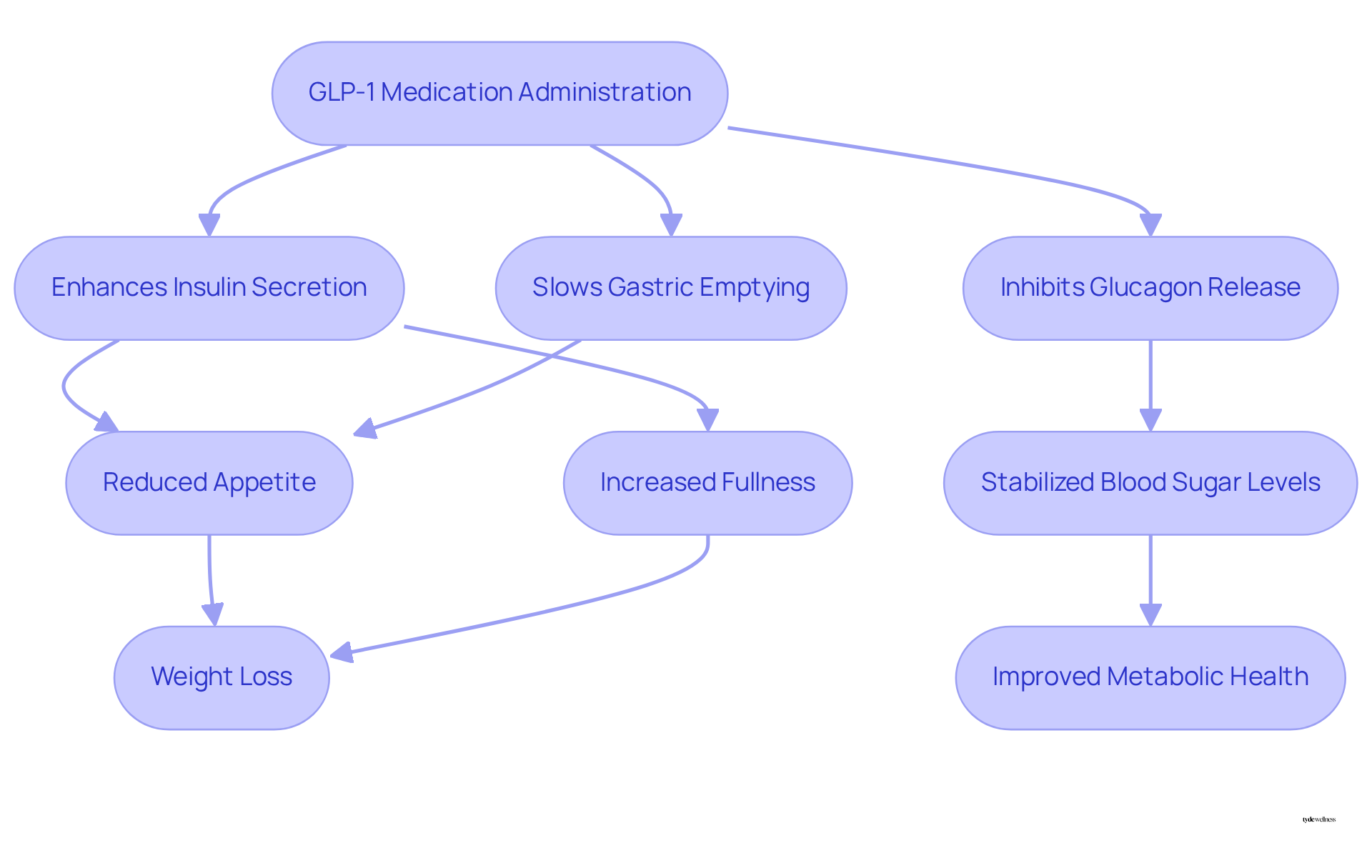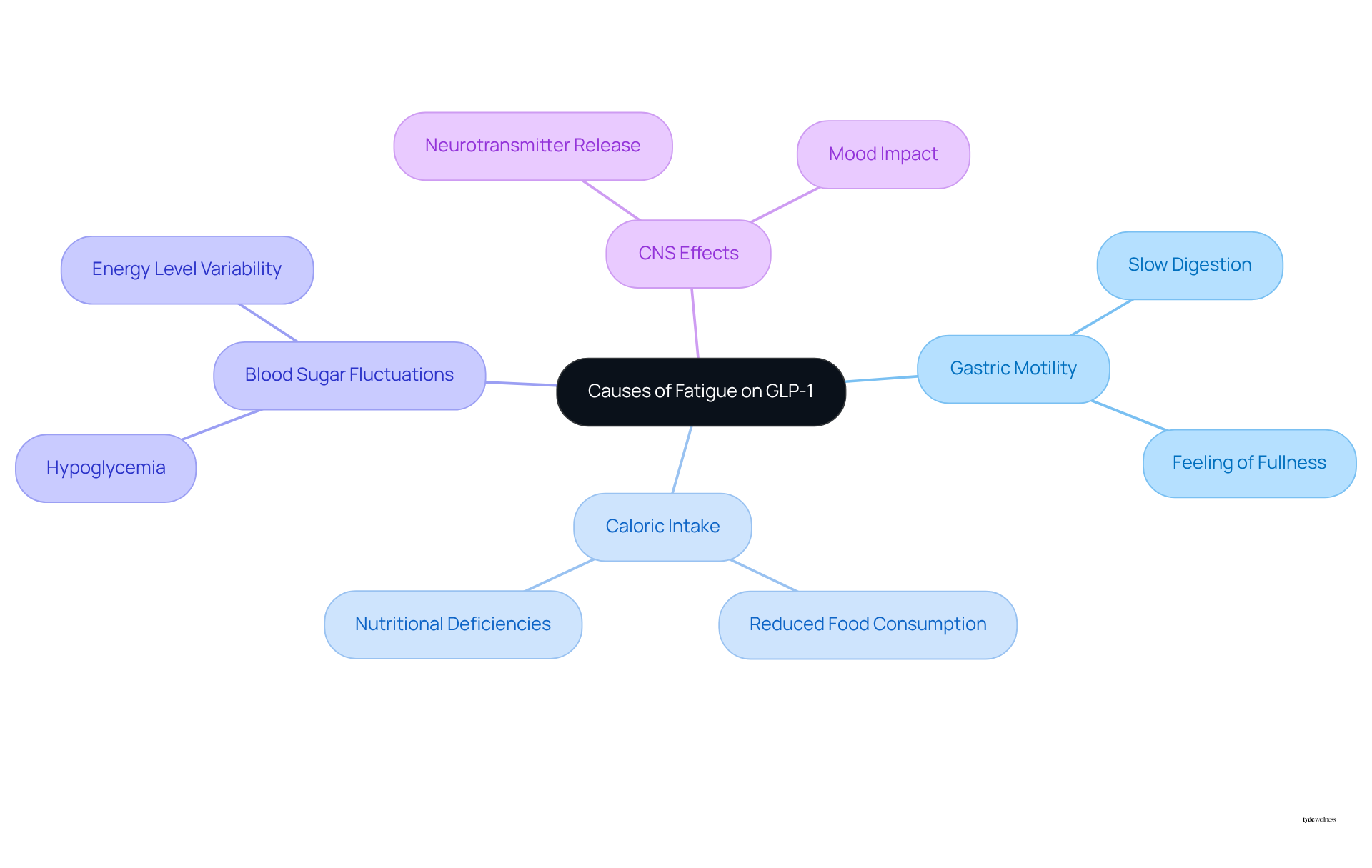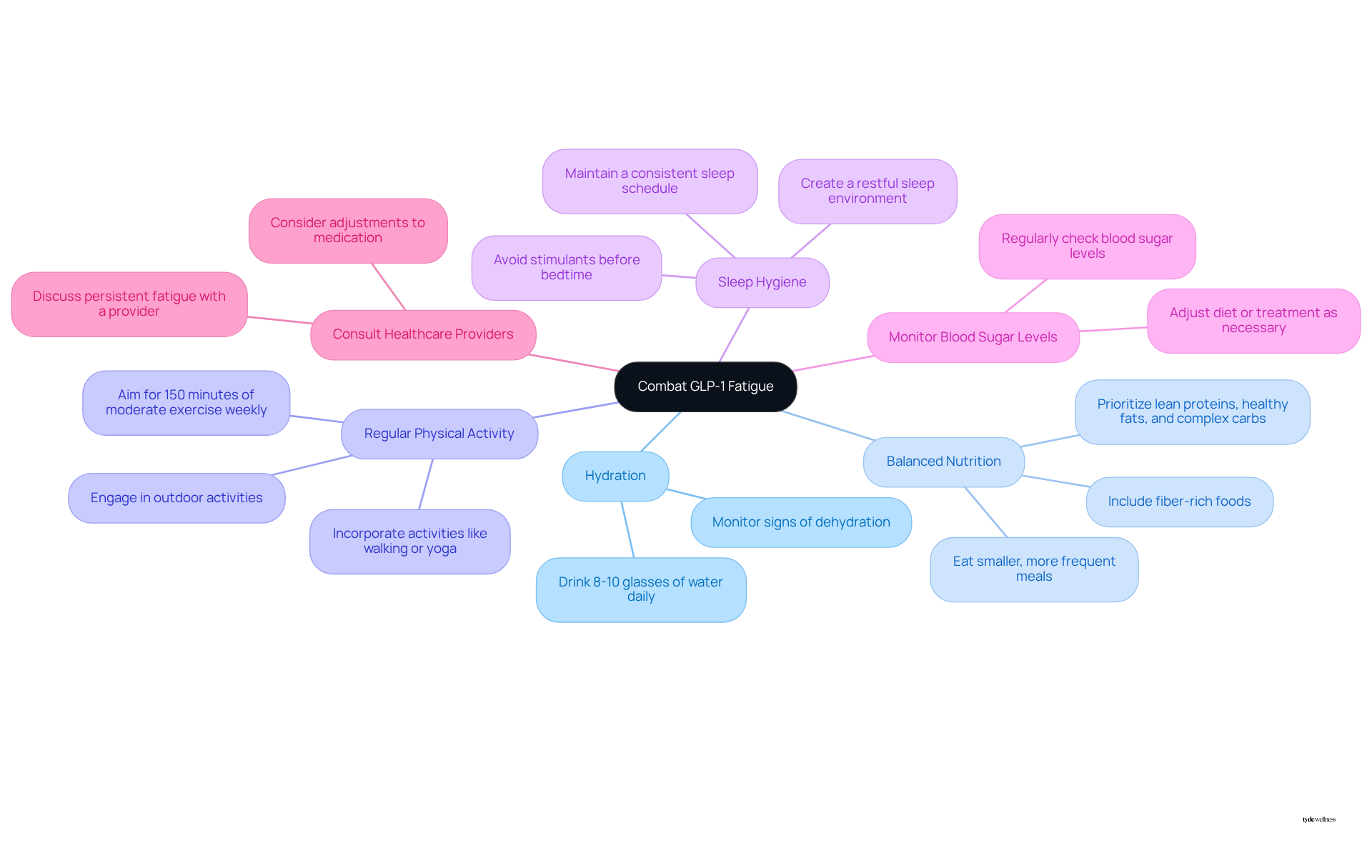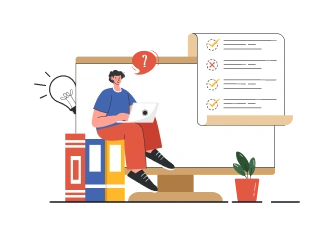Overview
GLP-1 medications can lead to feelings of fatigue, primarily due to their impact on gastric motility, which slows digestion and may result in reduced caloric intake, alongside fluctuations in blood sugar levels. The article emphasizes that maintaining hydration, balanced nutrition, and regular physical activity are essential strategies to mitigate fatigue during GLP-1 therapy. Addressing these factors is crucial for overall well-being, highlighting the importance of a comprehensive approach to managing side effects associated with these medications.
Introduction
The emergence of GLP-1 medications has revolutionized the management of type 2 diabetes and weight loss, offering significant health benefits. However, alongside these advantages, many patients report experiencing fatigue, raising an important question: does GLP-1 make you tired? Understanding the mechanisms behind these medications and their impact on energy levels is crucial for individuals navigating this treatment. As the connection between GLP-1 therapy and fatigue unfolds, it becomes essential to explore effective strategies for managing tiredness and enhancing overall well-being during this journey.
Explore GLP-1 Medications: Mechanisms and Benefits
Glucagon-like peptide-1 (GLP-1) treatments represent a significant advancement in managing type 2 diabetes and promoting weight loss. These medications mimic the role of the naturally occurring hormone that regulates appetite and glucose metabolism. Upon administration, they enhance insulin secretion, inhibit glucagon release, and slow gastric emptying, which leads to reduced appetite and increased feelings of fullness. This mechanism not only supports weight loss but also stabilizes blood sugar levels, making these treatments especially beneficial for women experiencing hormonal changes, such as menopause.
The benefits of GLP-1 treatments are substantial. Individuals participating in programs like Tyde Wellness report an average body weight reduction of 15% after 68 weeks, with many achieving weight loss exceeding 20-25% within a year. Furthermore, these medications contribute to improved metabolic health and may lower the risk of cardiovascular diseases. However, it is essential to understand these mechanisms to effectively manage potential side effects, including fatigue, particularly in relation to whether does GLP-1 make you tired that some patients may encounter during treatment. Recent research indicates that while these drugs significantly reduce body weight and adiposity, fat-free mass lost accounts for 25-40% of the total weight lost during therapy, raising concerns about muscle loss, which is vital for overall health and physical function.
As a result, it is advisable to incorporate physical activity and ensure adequate protein intake to mitigate these effects and enhance overall health during the treatment process.

Identify Causes of Fatigue on GLP-1: Understanding the Science
The fatigue experienced by individuals on GLP-1 treatments leads to the inquiry: does GLP-1 make you tired due to several physiological factors? A primary cause is the medication’s effect on gastric motility, leading to slower digestion and a sensation of fullness that may reduce overall caloric intake. This decrease in food consumption can result in insufficient energy, contributing to feelings of fatigue. Furthermore, fluctuations in blood sugar levels, particularly hypoglycemia, can lead to sensations of tiredness. Additionally, the central nervous system effects of these medications may play a role, as they can influence neurotransmitter release, potentially impacting mood and energy levels.
Significantly, during the initial weeks of therapy with GLP-1 receptor agonists, a common question is, does GLP-1 make you tired? It is essential for patients to remain well-hydrated, aiming for at least 2 liters of water daily, as dehydration can exacerbate feelings of fatigue. Dr. Dasgupta emphasizes that maintaining adequate nutrition and hydration is crucial for managing these symptoms. Understanding these factors is vital for effectively addressing tiredness and exploring whether GLP-1 makes you tired, ensuring adherence to treatment. If fatigue persists beyond 4-6 weeks, it is advisable to consult a healthcare provider to explore potential adjustments.

Implement Solutions to Combat GLP-1 Fatigue: Practical Tips and Strategies
To effectively combat fatigue associated with GLP-1 medications, consider implementing the following practical strategies:
-
Hydration: Maintain adequate fluid intake throughout the day, aiming for at least 8-10 glasses of water daily. Dehydration can significantly exacerbate feelings of fatigue, making it crucial to stay hydrated.
-
Balanced Nutrition: Prioritize a well-rounded diet rich in lean proteins, healthy fats, and complex carbohydrates. Eating smaller, more frequent meals that are nutrient-dense can assist in stabilizing energy levels and preventing blood sugar variations, which are essential for overall vitality.
-
Regular Physical Activity: Incorporate light to moderate exercise, such as walking or yoga, into your routine. Aim for a minimum of 150 minutes of moderate exercise each week to increase energy and improve mood. Engaging in activities outdoors can further enhance energy levels.
-
Sleep Hygiene: Establish good sleep practices by maintaining a consistent sleep schedule, creating a restful environment, and avoiding stimulants before bedtime. Additionally, refrain from eating too close to bedtime, as this can disrupt sleep quality. Quality sleep is crucial for managing tiredness.
-
Monitor Blood Sugar Levels: For individuals with diabetes, maintaining stable blood sugar levels is essential in reducing fatigue. Regular monitoring and necessary adjustments to diet or treatment can help maintain balance.
-
Consult Healthcare Providers: If fatigue persists beyond the initial adjustment period, it is advisable to consult with a healthcare provider. Discussing potential adjustments to medication dosage or timing may alleviate symptoms and improve energy levels.
By adopting these strategies, individuals can better manage fatigue and enhance their overall well-being while exploring if does GLP-1 make you tired during therapy.

Conclusion
GLP-1 medications have emerged as a transformative option for managing type 2 diabetes and aiding weight loss. However, the question of whether they contribute to fatigue remains a significant concern for many users. Understanding the mechanisms behind these medications reveals that, while they promote beneficial changes in appetite and metabolic health, they can also lead to feelings of tiredness due to factors such as altered digestion, fluctuations in blood sugar, and hydration levels.
The article delves into the physiological causes of fatigue associated with GLP-1 treatments, including the impact on gastric motility and energy intake. It also emphasizes the importance of hydration and nutrition in mitigating these effects. Practical strategies, such as:
- Maintaining a balanced diet
- Staying hydrated
- Engaging in regular physical activity
- Monitoring blood sugar levels
are essential for managing tiredness effectively. Furthermore, consulting healthcare providers when fatigue persists can lead to necessary adjustments that enhance energy levels and overall well-being.
Ultimately, addressing fatigue while using GLP-1 medications involves understanding the side effects and taking proactive steps to improve quality of life. By implementing these strategies, individuals can optimize their treatment experience, ensuring that the benefits of GLP-1 therapies outweigh the challenges of fatigue. Prioritizing health and wellness during this journey can lead to a more positive and empowered approach to managing diabetes and achieving weight loss goals.
Frequently Asked Questions
What are GLP-1 medications and their primary purpose?
GLP-1 medications are treatments that mimic the naturally occurring hormone glucagon-like peptide-1, which regulates appetite and glucose metabolism. They are primarily used to manage type 2 diabetes and promote weight loss.
How do GLP-1 medications work in the body?
Upon administration, GLP-1 medications enhance insulin secretion, inhibit glucagon release, and slow gastric emptying. This leads to reduced appetite and increased feelings of fullness, helping to stabilize blood sugar levels.
What benefits do individuals experience from GLP-1 treatments?
Individuals using GLP-1 treatments, such as those in programs like Tyde Wellness, report an average body weight reduction of 15% after 68 weeks, with many achieving weight loss of over 20-25% within a year. These medications also improve metabolic health and may lower the risk of cardiovascular diseases.
Are there any side effects associated with GLP-1 medications?
Yes, potential side effects include fatigue, which some patients may experience during treatment. It is important to understand these effects to manage them effectively.
Does GLP-1 treatment lead to muscle loss?
Recent research indicates that while GLP-1 medications significantly reduce body weight, fat-free mass lost accounts for 25-40% of the total weight lost during therapy, raising concerns about muscle loss.
What can be done to mitigate the effects of muscle loss during GLP-1 treatment?
It is advisable to incorporate physical activity and ensure adequate protein intake to help mitigate muscle loss and enhance overall health during the treatment process.
Who might benefit particularly from GLP-1 treatments?
GLP-1 treatments are especially beneficial for individuals managing type 2 diabetes and for women experiencing hormonal changes, such as menopause.
List of Sources
- Explore GLP-1 Medications: Mechanisms and Benefits
- GLP-1s for weight loss have heart benefits, too (https://news.sanfordhealth.org/heart/glp-1-weight-loss-heart-benefits)
- GLP-1 Drugs Fail to Provide Key Weight-Loss Benefit (https://newsroom.uvahealth.com/2025/07/21/glp-1-drugs-fail-to-provide-key-weight-loss-benefit)
- Research shows GLP-1 drugs are effective but complex – UChicago Medicine (https://uchicagomedicine.org/forefront/research-and-discoveries-articles/2024/may/research-on-glp-1-drugs)
- Study identifies benefits, risks linked to popular weight-loss drugs (https://source.washu.edu/2025/01/study-identifies-benefits-risks-linked-to-popular-weight-loss-drugs)
- Head-to-head Study Shows Bariatric Surgery Superior to GLP-1 Drugs for Weight Loss (https://asmbs.org/news_releases/head-to-head-study-shows-bariatric-surgery-superior-to-glp-1-drugs-for-weight-loss)
- Identify Causes of Fatigue on GLP-1: Understanding the Science
- Dealing With Unexpected Effects of GLP-1s (https://diatribe.org/diabetes-medications/dealing-unexpected-effects-glp-1s)
- What is the relationship between fatigue and Glucagon-like peptide-1 (GLP-1) agonists? (https://droracle.ai/articles/26147/fatigue-with-glp1-agonists-)
- Semaglutide Fatigue: Does Semaglutide Make You Tired? | Ro (https://ro.co/weight-loss/does-semaglutide-make-you-tired)
- Does Ozempic Make You Tired? What To Know | MyObesityTeam (https://myobesityteam.com/resources/do-glp-1-drugs-make-you-tired-what-to-know)
- Can GLP-1 (Glucagon-like peptide-1) receptor agonists like Ozempic (Semaglutide) cause physical fatigue and mental drowsiness? (https://droracle.ai/articles/176392/can-a-glp-one-ozempic-cause-physical-fatigue-and-mental-drowsiness)
- Implement Solutions to Combat GLP-1 Fatigue: Practical Tips and Strategies
- GLP-1 Fatigue: Why It Happens And What To Do (https://trimbodymd.com/faqs/glp-1-fatigue-why-it-happens-and-what-to-do)
- (https://rupahealth.com/post/fatigue-and-ozempic-how-to-cope-and-improve-energy-levels)
- Why Diet and Exercise Still Matter During Treatment with GLP-1 Medications | Mass General Brigham (https://massgeneralbrigham.org/en/about/newsroom/press-releases/why-diet-exercise-matters-while-taking-glp-1-medications)
- How To Improve And Sustain Energy Levels On GLP-1s | Levity (https://joinlevity.com/posts/increase-energy-week-4)
- Does Ozempic make you tired? (https://singlecare.com/blog/does-ozempic-make-you-tired)



